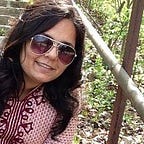As per a recent study some species of baby bats also babble like human babies
According to a recent study babbling is not limited to human babies. Some baby bats are also quite talkative during their infancy. They even made sounds that resemble the googoo gagas of human tots.
In human children the babbling phase is considered a key developing stage that helps them develop control over the vocal apparatus that is necessary for proper speech later on.
The study published in the journal, Science shared that this phenomenon is also true for the bat species Saccopteryx bilineata, commonly known as greater sac-winged bat.
“Human infants seem to babble on the one hand to interact with their caregivers, but they also do that when they’re completely alone, seemingly happily just exploring their voice, and that’s the same what our bats are doing,” study co-author, Mirjam Knornschild, behavioral ecologist at the Museum of Natural History in Berlin, told AFP.
Generally bats communicate through ultrasound, sound waves at frequencies above human hearing, but they can also make sounds audible to people.
“It sounds like a high pitched twittering to our ears… it’s melodic,” said Knornschild, who has worked with bats since 2003.
Saccopteryx bilineata don’t hide away in gloomy caves, but prefer to live in trees, making them easier to observe. The babbling of 20 baby bats was recorded in Costa Rica and Panama between 2015 and 2016 by researcher Ahana Fernandez, who spent many hours with the bats in the forest and is affiliated with the Museum of Natural History in Berlin.
These mammals, like humans, have a larynx, and start babbling about three weeks after birth, for about 7 to 10 weeks until they are weaned.
During this period, the bats spend around 30 per cent of their days babbling, with sessions lasting on average about 7 minutes, according to the calculations by the researchers. However, one bat babbled for a full 43 minutes, a long stretch considering adult communication generally lasts but a few seconds.
“That’s something really, really peculiar that the other bat species that have been studied to date simply don’t do,” Knornschild shared, adding “They’re very chatty.”
The vocalizations were converted into images, called spectrograms. “Each syllable has a very specific shape, so to say, and they are easy to distinguish by eye,” Knornschild added.
Researchers analyzed more than 55,000 produced syllables, finding universal characteristics of babbling in human infants in the bats, such as repetition, lack of meaning, but also that the sounds followed a certain rhythm.
Another similarity with humans is on their learning. In both the species the learning curve is not linear. Out of 25 syllables in the adult repertoire, young bats have not yet mastered all of them by the time they are weaned, suggesting that they continue to learn. The researchers were able to show that the young bats learned fairly early on a six syllable song used by males to mark their territory and attract females. “The pups listen to adult males singing and then imitate that song,” Knornschild shared.
Baby females also learn the song, even though they won’t reproduce it as adults. However, the study suggests learning it may help them judge the performance of their potential future partners.
Only a handful of other species babble including some birds, two species of marmosets and perhaps some dolphins or beluga whales. So the question arises as to why would certain animals need to develop in this way and others not?
“Navigating and communicating in a dark, 3d environment, seems to be a huge selective pressure for vocal learning,” Knornschild said.
Whatever the reasons behind the phenomenon, one thing the researchers can say for sure is that developing a complex vocal system opens a world of possibilities as demonstrated in humans, and now also in bats.
Originally published at https://pk.mashable.com on August 20, 2021.
